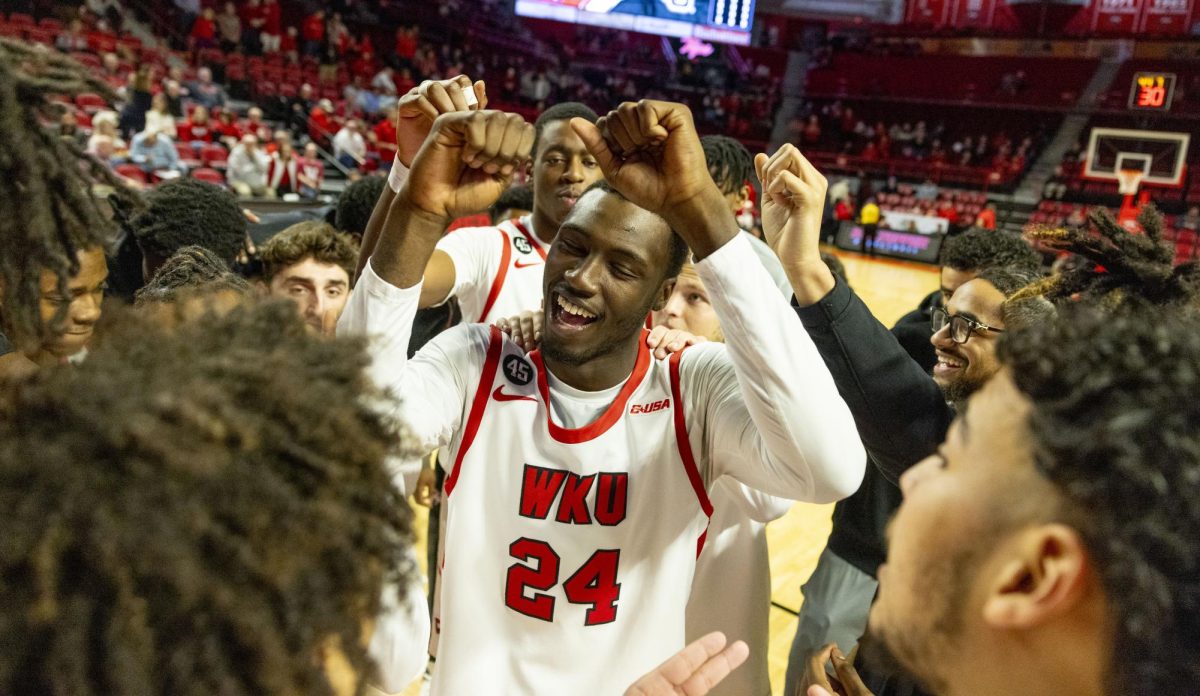‘Occupy’ movement taking off at WKU
October 14, 2011
Across the United States there have “occupations” of cities and towns, originating in New York City with the “Occupy Wall Street” protests.
Inspired by these movements, sophomores Peyton Crenshaw and Ellie Osborne decided to bring the message to WKU.
Crenshaw and Osborne on Thursday night hosted the first meeting for “Occupy WKU” to ask students and community members what the goals and tactics of the group should be.
“This is a leaderless movement,” Crenshaw said. “We don’t have someone we can go to tell us what should be done.”
Those who attended the meeting had broad views on what should be protested by the group — a full audit of the Federal Reserve, income tax disparities and the Koch brothers.
Osborne said she is upset that corporations have done things that are immoral, but not illegal.
“That’s why corporations need to be regulated,” she said. “And that’s what we’re fighting for.”
According to Crenshaw, though, the “core” focus of the movement is to end corporate influence in politics.
“I feel like money is outweighing my voice,” she said.
One attendee said he was upset with the way the media had covered the protests and portrayed the protestors as “leftist hippies.” He said he “likes capitalism,” just not when it “goes too far.”
Osborne agreed the media often showcases one individual who is not representative of the overall movement.
“There are parts that you may not necessarily agree with, but that’s one tiny aspect of a larger movement,” Osborne said.
In order to spread the message of the movement, Osborne said one option is to protest, including during nationwide student. On Oct. 5, a planned walkout prompted students at around 100 college campuses around the country to walk out of class in protest.
For Osborne, this is just one part that shows how large the movement is becoming.
“[Occupy Wall Street] is a nonviolent movement on a scale our generation hasn’t seen, and it really does have the power to create change,” she said. “I haven’t seen our generation get riled up about something like this.”
There have been 800 cities with “Occupy” protests across the globe, and the movement is still growing, Crenshaw said. Osborne compared the protests to the Arab Spring, the wave of revolutions that struck the Middle East this year.
However, before protests at WKU, Crenshaw said her first goal is to get the message out.
“A lot of people I’ve talked to don’t know what’s going on,” she said. “Why would they walk out if they don’t know what we’re doing?”
Since Bowling Green is a relatively small town, Osborne said, one of the goals should also be to get WKU students to join larger “Occupy” protests around Kentucky, including in Louisville.
“If we donate our support to a bigger occupation it can have a big effect,” Osborne said.
In the end, Crenshaw hopes the movement can affect real change in the country.
“We want to take back our democracy,” she said.
The group plans to meet again at 7 p.m. next Thursday. Details on where the group will meet next week can be found on its Facebook page “Occupy Western Kentucky University” once it has been decided.













